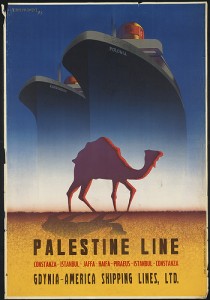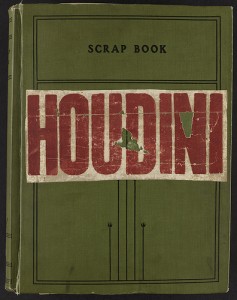Via @NYPLMaps (New York Public Library’s Map Division).
Conductor: www.mta.me from Alexander Chen on Vimeo.
From Chen’s site:
Conductor turns the New York subway system into an interactive string instrument. Using the MTA’s actual subway schedule, the piece begins in realtime by spawning trains which departed in the last minute, then continues accelerating through a 24 hour loop. The visuals are based on Massimo Vignelli’s 1972 diagram.
A mesmerizing way to re-present geographic information. It also reminds me of video games (gotta love SNAFU) I played back in the Eighties.
For anyone not hip to it, the NYPL’s Map Division has been tweeting an online map of the day. Cartographophiles (a word?) like me can dig it. But, if one new map a day isn’t enough, why not look at their digital collection and drool.










